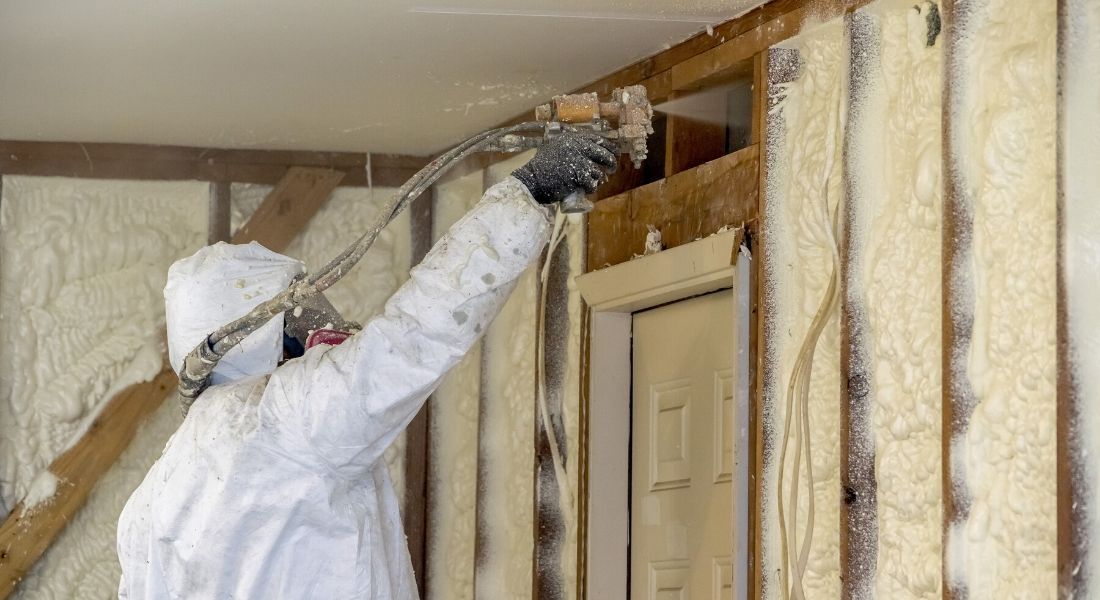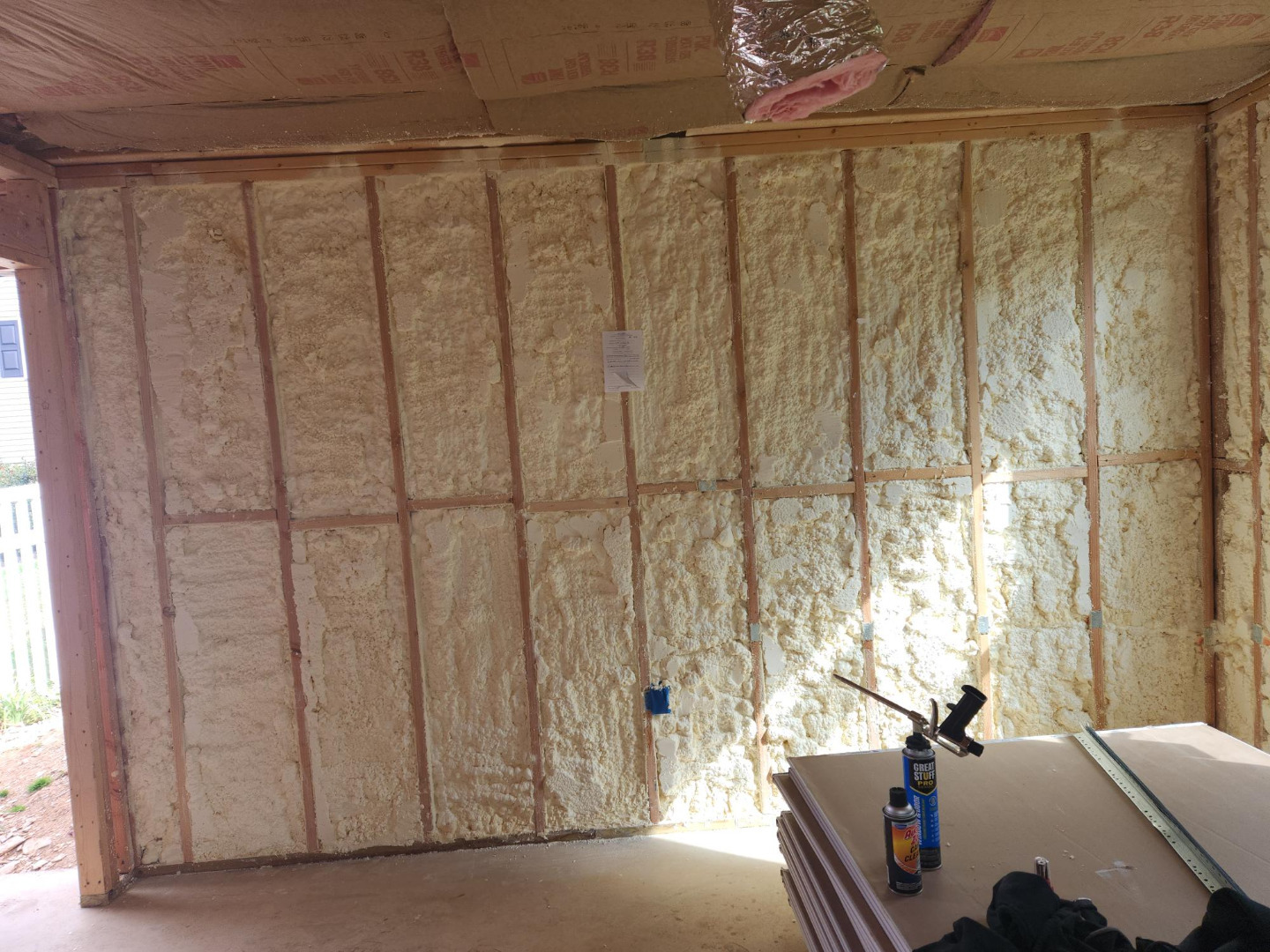Central Pennsylvania Spray Foam, Attic Blown-In, Fiberglass Batt, Air Sealing and Blower Door Testing .
Spray Foam Insulation in Central Pennsylvania
At Draft Stoppers, we provide professional spray foam insulation services in Central Pennsylvania, helping homeowners and businesses reduce energy costs, improve comfort, and protect their buildings from moisture and air leakage. Whether you’re upgrading an older home or insulating a new build, our spray foam solutions deliver long-lasting performance you can rely on.
We proudly serve communities throughout Mifflin, Juniata, Perry, Snyder, Union, Centre, Dauphin, Cumberland, Franklin, Blair, Huntingdon, and Fulton Counties, including cities and towns like Lewistown, Mifflintown, Newport, Selinsgrove, Lewisburg, State College, Harrisburg, Mechanicsburg, Chambersburg, Altoona, Huntingdon, and McConnellsburg.

What Is Spray Foam Insulation?
Spray foam insulation is a high-performance insulating material that expands on contact, sealing cracks, gaps, and voids that traditional insulation cannot reach. Unlike fiberglass or cellulose, spray foam creates an airtight seal, preventing conditioned air from escaping and blocking outside air from entering.
There are two main types of spray foam insulation:
- Open-cell spray foam – Lightweight, flexible, and excellent for soundproofing and interior applications
- Closed-cell spray foam – Dense, moisture-resistant, and provides a higher R-value per inch
Our team will help you choose the best option based on your structure, goals, and budget.
Benefits of Spray Foam Insulation
Spray foam insulation offers unmatched performance compared to traditional materials. Some of the biggest advantages include:
1. Superior Energy Efficiency
By sealing air leaks, spray foam dramatically reduces heating and cooling loss. Many homeowners in Central PA see immediate energy savings after installation.
2. Improved Comfort
No more drafts, hot spots, or cold rooms. Spray foam keeps your indoor temperature consistent year-round.
3. Moisture & Mold Protection
Spray foam blocks moisture intrusion, helping prevent mold, mildew, and rot—especially important in basements, crawlspaces, and rim joists.
4. Increased Structural Strength
Closed-cell spray foam adds rigidity to walls and roofs, enhancing the durability of your building.
5. Long-Lasting Performance
Unlike traditional insulation, spray foam doesn’t sag, settle, or deteriorate over time.
Where We Install Spray Foam
Draft Stoppers installs spray foam insulation for both residential and commercial properties across Central Pennsylvania. Common applications include:
- Attics and roof decks
- Basements and crawlspaces
- Rim joists and band boards
- Walls (new construction and retrofits)
- Pole buildings and metal buildings
- Garages and workshops
- Commercial buildings and warehouses
Whether you’re located in State College, Harrisburg, Lewistown, Selinsgrove, or Chambersburg, our team is ready to help.
Why Choose Draft Stoppers?
We’re more than just an insulation company—we’re building performance specialists. When you choose Draft Stoppers, you get:
✔ Local Central PA experts
✔ Fully licensed and insured professionals
✔ Honest recommendations (no upselling)
✔ Precision installation
✔ Blower door & air sealing expertise
✔ Long-term energy-saving solutions
Our mission is to help Central Pennsylvania homeowners and business owners save money, improve comfort, and protect their investment.
Feature | Spray Foam | Fiberglass | Cellulose |
Air Sealing | ✔ Yes | ✘ No | ✘ No |
Moisture Resistance | ✔ Yes | ✘ No | ✘ No |
High R-Value | ✔ Yes | Moderate | Moderate |
Long Lifespan | ✔ Yes | Moderate | Moderate |
Serving Central Pennsylvania
We proudly serve homes and businesses throughout:
Mifflin County: Lewistown
Juniata County: Mifflintown
Perry County: Newport
Snyder County: Selinsgrove
Union County: Lewisburg
Centre County: State College
Dauphin County: Harrisburg
Cumberland County: Mechanicsburg, Carlisle
Huntingdon County: Huntingdon
If you’re unsure whether you’re in our service area—just ask!


